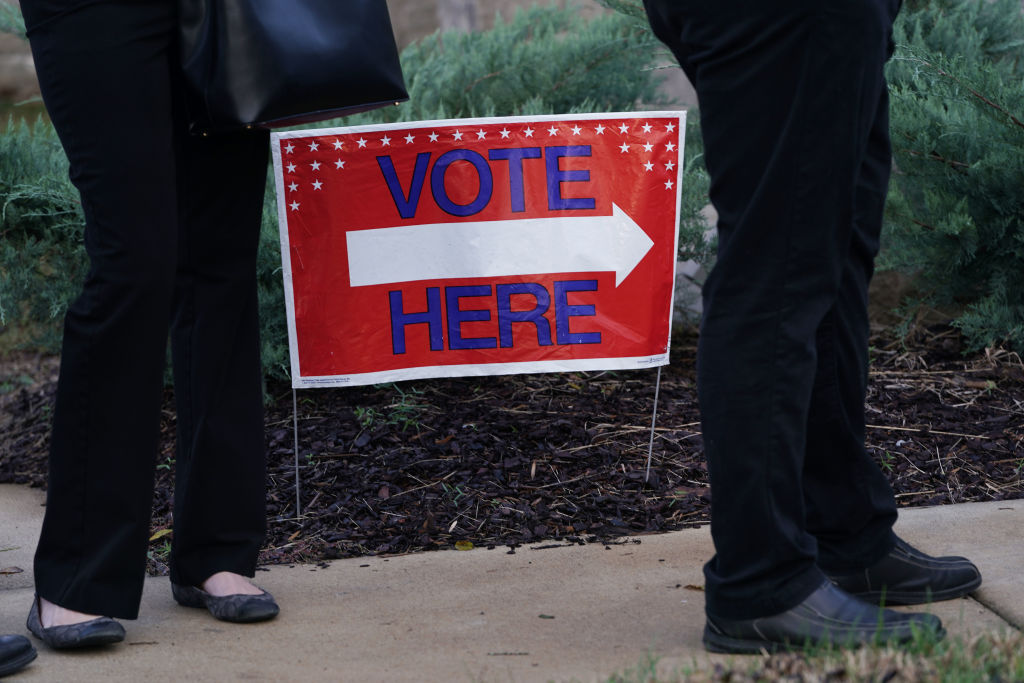
November 30, 2023
Tennessee’s Stringent Voting Laws Disenfranchise 21% Of Black Voters, Report
Tennessee is also the only state in the country where if you are an ex-felon and behind on your child support payments, you can't vote.
Tennessee’s strict voting laws have effectively disenfranchised 21% of the state’s Black voters by making voting right restoration for those convicted of felony offenses cumbersome, according to a report from ProPublica. Not only does the state have a long list of requirements, which includes paying any court costs or restitution, but they have to either seek a pardon from the governor or pay to petition a judge to hear their case. Tennessee is also the only state in the country where if you are an ex-felon and behind on your child support payments, you can’t vote.
In a 2022 report from The Sentencing Project, Tennessee leads in total percentage of disenfranchised individuals with felony convictions and Black and Latinx disenfranchised individuals with felony convictions.
In a statement to ProPublica, Republican Speaker of the House Cameron Sexton defended the the state’s policies.
“If someone’s not paying or behind on their child support payment, that’s an issue,” he told ProPublica. “That’s an issue for that child, that’s an issue for that family, not having the things that they agreed to in court to help them for that child.”
Sexton also doubled down when informed that Tennessee is the only state with that stipulation, saying, “Maybe Tennessee is doing it correctly and the others are not.”
In 2019, two Republican legislators tried to tackle the problem with a bill that would have automatically restored voting rights once a person had completed their sentence and paid their debt to society. The bill had bipartisan support and support from groups like Americans for Prosperity and the Tennessee American Civil Liberties Union, but lawmakers allowed the bill to die.
A similar bill was sponsored in 2021, this time by two Democrats, but it met the same fate as its predecessor. One of the bill’s sponsors, Rep. Brenda Gillmore, told ProPublica, “We said we wanted to do criminal justice reform, but all we’ve done is really nibbled around the edges.”
As Michael Moore, a Tennessean who has been trying to have his voting rights restored for two years, told Bolts, “I feel like it’d make me a whole citizen again, getting my voting rights. I’m hurt looking at the people voting, and I wish I could make a local difference in my community.”
Moore added, “They’re making it near impossible. I think it’s by design. Once they open a door, they put out another block.”
There is, however, a lawsuit against the state’s voting rights restoration process filed by the Tennessee NAACP, which claims that Tennessee is violating the Constitution’s guarantee of due process and equal protection rights contained in the 14th Amendment. According to ProPublica, the state is denying that its process is inaccessible in court documents. According to the Tennessee Lookout, in August, lawyers representing the Tennessee Attorney General’s office filed to have the Tennessee NAACP’S case dismissed. In October, Blair Bowie, an attorney representing the NAACP from the Campaign Legal Center, told the Lookout, “The Elections Division, TDOC, and Governor’s office had the opportunity this summer to create accessible, transparent, and uniform procedures to allow the over 470,000 disenfranchised Tennesseans a fair shot at getting their voting rights restored and rejoining their communities as full citizens.”
Bowie added, “Instead, they blew up the voting rights restoration system entirely and imposed effectively permanent disenfranchisement on July 21.”
Kathy Sinback, the executive director of the Tennessee ACLU, described the impact of Tennessee’s strict voting laws to Bolts, “Even under the old procedure, less than one percent of people who had felonies were able to get their voting rights restored because of just a morass of bureaucracy.”
RELATED CONTENT: Remy Ma On Why She Advocates for Felon Voting Rights